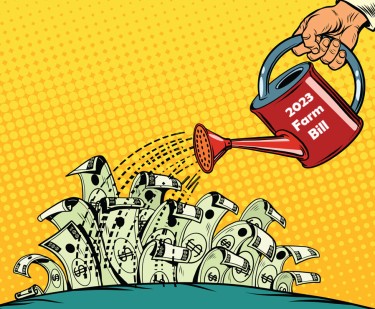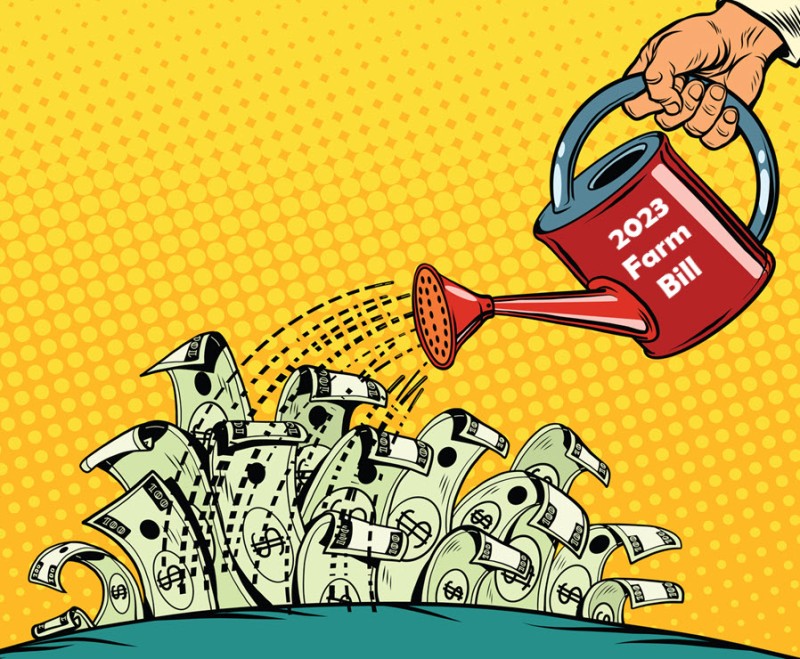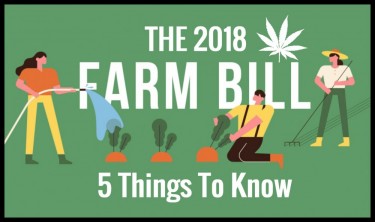
Industry Professionals urge Congress to regulate CBD and hemp-derived compounds in 2023 Farm Bill. What will the FDA do on CBD in food? Will psychoactive Delta-8 and 9 derived from hemp be banned nationally or will the new 1% THC limit help that market explode to new heights? Inquirig minds want to know!
Since the inception of the hemp industry four years ago, one thing that has continued to impact the market negatively is the FDA's inaction in regulating hemp-derived cannabinoids and products.
In 2018, the United States legalized the cultivation, possession, and sales of hemp through the Farm Bill. Subsequently, the USDA laid down regulations for hemp production; however, the 2018 legislation is set to expire by 2023. (The legislature has to renew the bill every five years). This means the FDA prevented a significant growth in the hemp industry by failing to regulate hemp-derived compounds. Stakeholders in the industry, as well as concerned advocates, are trying to avoid this from happening again when the bill is amended in 2023.
The Upcoming 2023 Farm Bill
On July 2, a hearing titled 'An Examination of the USDA’s Hemp Production Program' was held by congress to explore the various ways the 2018 bill could be upgraded for hemp production to improve by 2023. At the meeting were the House Agriculture Subcommittee members, Eric Wang—CEO of Ecofibre and U.S. Hemp Roundtable (USHR) Vice President, and Ryan Quarles—Kentucky's commissioner of Agriculture.
At the hearing, Wang and Quarles spoke. about the FDA's lack of regulations for CBD and hemp-derived compounds, as well as how it was hurting the industry. Both urged the committee members to include a much-needed language in the 2023 Farm Bill to automatically regulate CBD and several other hemp-derived products. This way, the industry would have no reason to wait on the FDA. The majority of the attendees at this crucial hearing agreed with their point of view.
During his testimony, Quarles stated that the Food and Drug Administration's tardiness in putting together a set of rules and regulations for hemp cannabinoids, especially cannabidiol, is disappointing. The supply chain in the hemp industry needs clear direction from the FDA regarding hemp-derived products before actors can develop and manufacture beneficial CBD-related compounds. This is currently a grey area; hence many business leaders are unwilling to make a move. This has resulted in very little demand for harvested hemp plants and materials.
When the 2018 Farm Bill was approved, Congress assured the public that it would support the cultivation and sales of hemp plants and hemp-derived compounds. This announcement spurred thousands of farmers in the U.S. to cultivate hemp on a medium and large scale. Hundreds of thousands of acres were utilized for this, only for the FDA officials to announce that it is illegal for indigestible hemp compounds to be sold. These public statements by the FDA took a mighty toll on the industry, as CBD commerce and investments resulted in losses. Since then, the industry has been chilled due to a lack of favorable policies at the federal level.
Jim Baird, Ranking Member Representative, commented that the FDA is yet to have a framework to regulate hemp-derived cannabinoids. He stressed that Congress has heard various recommendations for the amended bill and promised to continue discussing these great proposed solutions.
Chairwoman of the committee, Stacey Plaskett, wholeheartedly agreed that the FDA's inaction had to be rectified in the next few months.
More Concerns Due To The FDA Inaction
Many people, including Wang, have warned that the FDA's inaction further endangers millions of Americans. Poorly regulated CBD products put people's safety and health at risk. In the last months, there has been an increase in the number of hemp products advertised as intoxicating. Consumers rarely research further on these products before buying and consuming them.
Wang rightly stated that farmers are not the only ones suffering from this regulatory uncertainty. Customers are impacted as well. Unsavory individuals mislead consumers by making false claims on product labels and selling products without the necessary precautions.
To make matters worse, affected farmers and business leaders have started producing and selling intoxicating products like Delta-8 THC. The U.S. Hemp Roundtable noted that many issues in the industry are more complicated than ever. Even minors are at risk.
With a clear regulatory pathway for CBD by the U.S. Food and Drug Administration, the economic pressure for the ongoing product shit will be relieved. This clear policy will guarantee that harmful hemp materials containing psychoactive compounds do not find their way into the market.
Next Steps…
Based on the report issued after the hearing, in the next few months, congress will be taking steps to incorporate CBD regulatory policies into the 2023 Farm Bill. This will regulate all non-toxic compounds derived from hemp as dietary supplements. In addition to this, Rep Chellie Pingree would be making similar provisions in his proposed Hemp Advancement Act.
Wang explained that both measures are absolutely necessary to limit the hemp product pathway to safe, non-toxic materials.
On the other hand, Quarles recommends taking into account a number of the Hemp Advancement Act's crucial clauses, most importantly raising the overall THC limits for raw hemp material from 0.3 percent to 1.0 percent and eliminating the requirement that testing facilities register with the DEA. He believes raising the federal definition of hemp plants is the most appropriate step for the federal government. He also noted that the proposed 1.0% limit should include every THC isomer which has been found to have toxic effects on users, including delta-9, delta-8, delta-9, HHC, and delta-10.
BOTTOM LINE
The future of the hemp and CBD industry depends on the decision that will be taken in the coming months. By adopting a "total THC" criterion rather than a "delta-9 THC alone" standard, a threshold that more accurately reflects the substance's genuine intoxication potential will be created.
Like Quarles rightly said, in the coming years, we should expect moderate growth in the number of acres planted, at least until the FDA establishes the legal framework for CBD and other non-intoxicating cannabinoids. Wang concluded that clear regulatory guidance for CBD would assist in building the positive momentum needed to see the U.S. reclaim its position as the world leader in industrial hemp.






